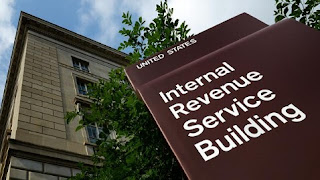But here's the good news: unlike some fly-by-night debt collectors, the IRS must stay within the bounds of the law.
Even though it may seem like it, the IRS's primary interest is NOT making your life miserable, but, instead, is collecting your debt. Therefore, if you follow the procedures and relief formulas the IRS allows you to use, you can pay off your debt and get the IRS off your back.
The IRS gives you avenues of relief when your tax debt is too big for you to pay.
- Offer in Compromise - If you cannot pay your full tax liability, or if doing so would create a hardship, you may qualify to reduce your tax bill through an offer in compromise. Under this process, you determine an amount that you can pay using an IRS formula that considers your income and assets. You then submit this offer to the IRS and, pending IRS approval, you have up to 24 months to pay off the reduced amount, satisfying your debt in full.
- Installment Agreement - An installment agreement or payment plan gives you time to pay your tax debt. If you owe, you can provide IRS financial reporting documentation on your situation and negotiate the lowest possible payment plan. Some payment plans are referred to as partial payment plans. This is where the amount you negotiate will not cover your IRS debt within the statutory time (10 years) the IRS has to collect by law. There are instances where this is better than an Offer in Compromise.
- Abatement of Penalties - You can use this strategy to eliminate the penalties the IRS dumped on you in addition to the taxes you owe. There are a number of grounds you can use to make this claim, such as undue economic hardship, the loss of property in a natural disaster, a recent death, divorce, various life events, alcoholism, depression, drug abuse and various other reasonable causes.
- Innocent Spouse Relief - Normally, both spouses are equally responsible for the payment of taxes on a joint return. The innocent spouse relief will remove much or all of your liability and pin it slowly on your spouse (or ex-spouse). This might apply, for example, if your spouse operates a business that you do not participate in and owes taxes as a result of that business. We usually recommend, in these cases, to file separate tax returns and avoid the innocent spouse relief negotiation.
- Bankruptcy - Bankruptcy is not a simple process and has many lingering effects, such as a potentially decade-long hit on your credit. However, bankruptcy can be a perfect tool in the right direction, and it can permanently eliminate some or all of your income tax liabilities, including interest and penalties.
Is the IRS on your trail? Call us at (610) 863-8347 for an appointment today!

No comments:
Post a Comment